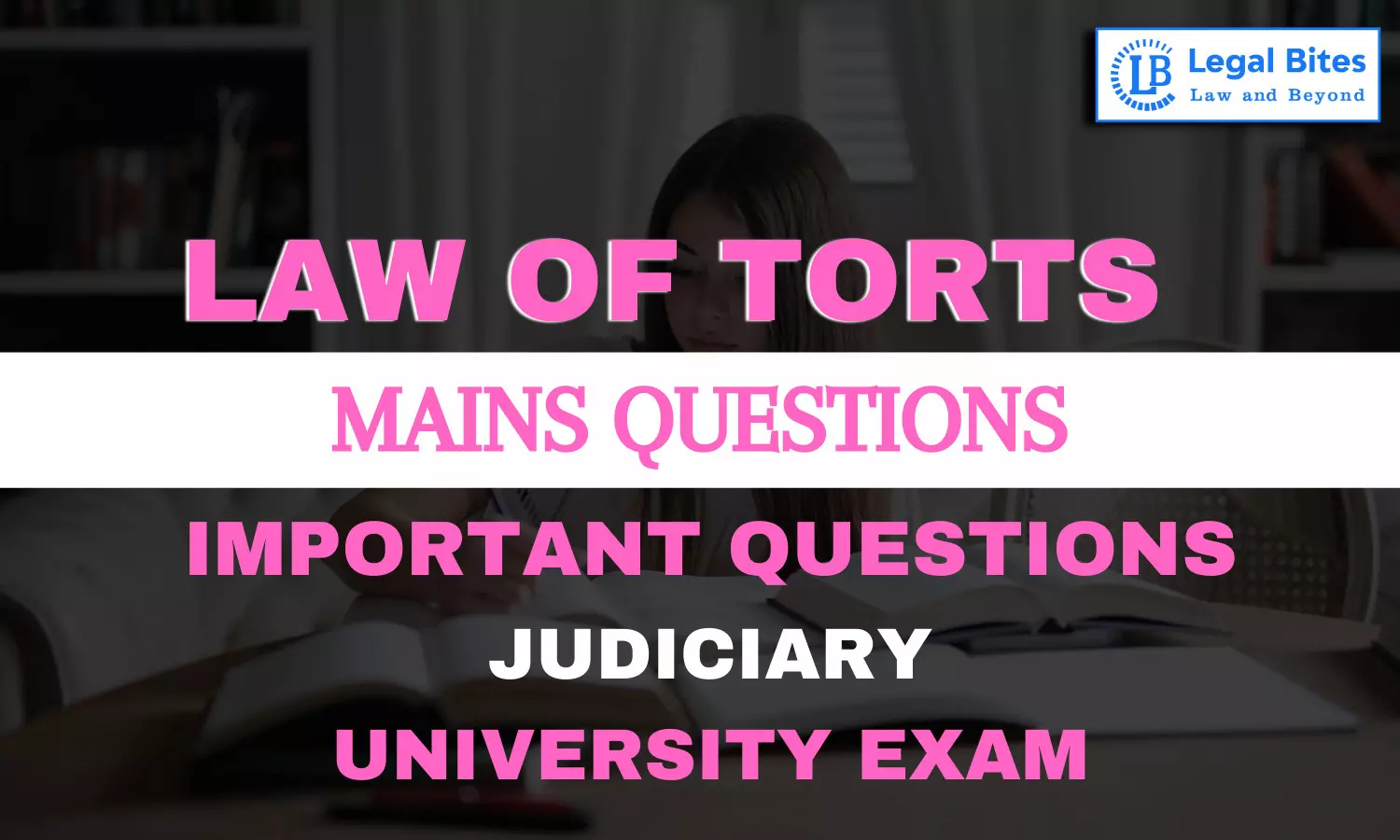Law of Torts Mains Question Answer Series 5: Important Questions for Judiciary Exams | Part – V
Legal Bites presents the Law of Torts Important Question-Answer Series. The questions listed here will help students study for various Competitive and University Exams.

Legal Bites presents the Law of Torts Important Question-Answer Series. The questions listed here will help students study for various Competitive and University Exams. Candidates can use Legal Bites' list of questions to help them determine the most important and often asked questions and practice their aptitude and knowledge.
Answering questions is a continuous process that is an inevitable component of any test preparation, as we all know. A well-written response displays not just a candidate's knowledge but also his or her ability to tailor the content to the question's requirements.
It is vital to prepare for this exam to pass it thoroughly. To attain mastery over the subjects studied, applicants only need to keep practising these questions in the months coming up to the examinations. Following it, the candidate's confidence level, as well as their scores, will vastly improve.
Law of Torts Mains Question Answer Series 5: Important Questions for Judiciary Exams | Part – V
Question 1:
"The keynote of the law of torts lies in wrong doing set in a civil, as opposed to a criminal, framework." Elucidate. [BJS 1987]
Question 2:
Explain the following: Ubi jus ibi remedium. [RJS 1971, 1976, BJS 2000, UPJS 2018]
Question 3:
When and in which cases the principle of vicarious liability can be invoked by the plaintiff suing under the Law of Torts? [DJS 2018]
Question 4:
"Intention on defame is a essential ingredient of tort of defamation." Discuss. [UPJS 1999]
Question 5:
Briefly state the facts and explain the principle contained in the following decisions:[BJS 2000]
(a) Ashby v. White
(b) Armory v. Delamire
(c) Derry v. Peek
(d) Rylands v. Fletcher
Question 6:
"No case of actionable negligence will arise unless there is a breach of duty to take care." Discuss this statement with the help of decided cases. [UPJS 2016]
Question 7:
Is it necessary that to become a crime, an act must be tort? Discuss [BJS 2014]
Question 8:
Though, the concept of Tort is essentially based on the principle of Equity and Justice, but the essence of tortious liability lies in violation of legal right. Discuss. [DJS 2011]
